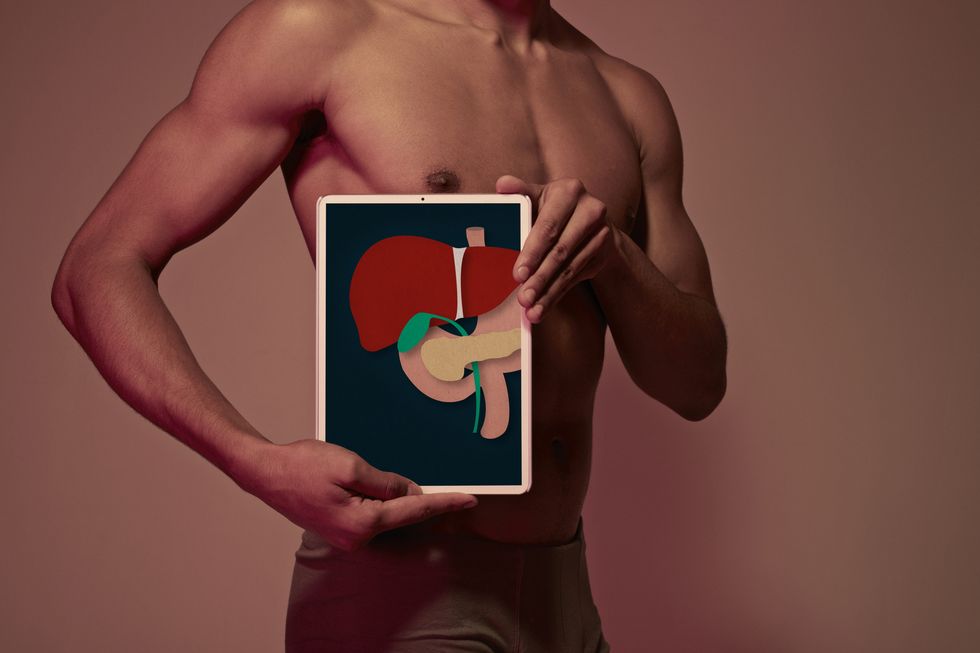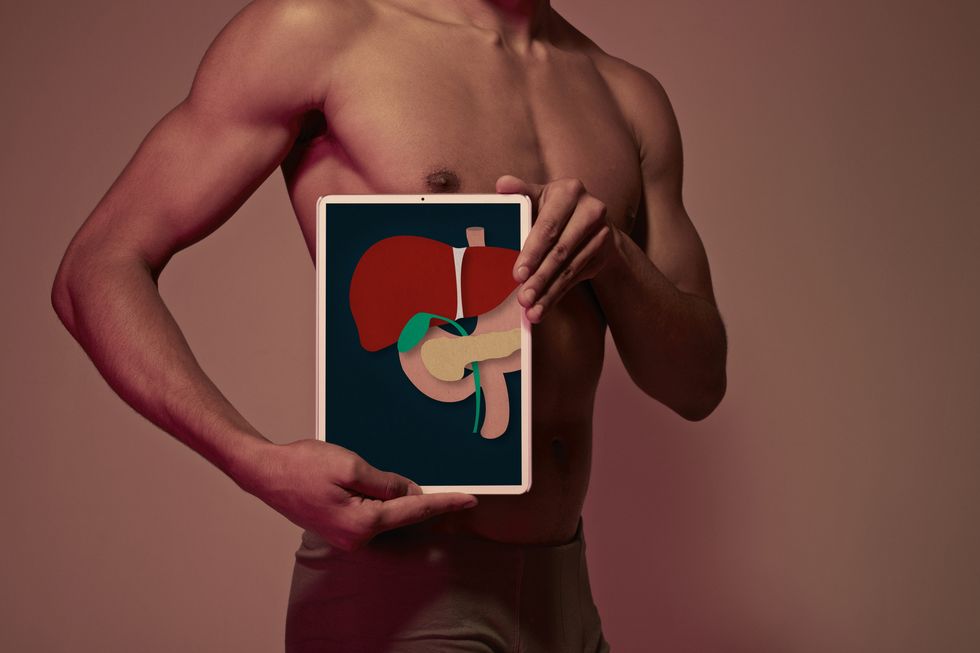
1
Coffee

Okay, we know it’s technically a beverage, but we’re putting this one first.
“The only food where there is clear evidence for a beneficial impact on your liver is coffee,” says Bansal. “Coffee consumption is associated with improvement in liver enzymes, especially in individuals with risk for liver disease.”
Those with pre-existing liver disease have shown improvements in incidence rates of fibrosis and cirrhosis (scarring of the liver), liver cancer, and overall mortality when given three or more cups of coffee per day, she says. Interestingly, scientists do not completely understand what exact components of coffee are conferring the benefit since there are numerous compounds in coffee, but it is thought to be the combination.
Ideally, you should drink black caffeinated coffee to avoid the excess calories that come from cream and sugar, Bansal says. It’s worth noting that decaffeinated coffee does not confer the same benefit as regular coffee, but there is no clear evidence that caffeine is the driver of the benefits. Don’t get any ideas, though—caffeine supplements are not going to provide the same effect.
Not a coffee drinker? Black tea may prove helpful for liver health too, though it might not be to the same effect, Bansal says. “So if you have a choice, drink coffee. If you cannot drink coffee then black tea may have some benefit albeit much smaller.”
2
Nuts
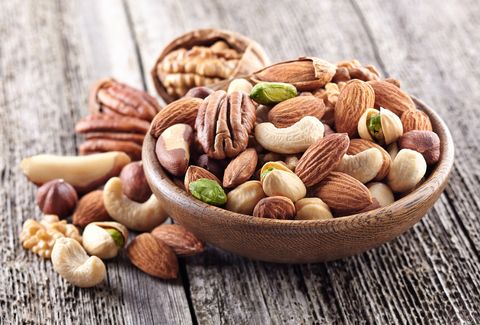
Here’s another one that you may associate with heart health, but nuts don’t just benefit your ticker. Nuts contain healthy fats and antioxidants, and they have been associated with a lower prevalence of fatty liver disease in men.
3
Olive Oil
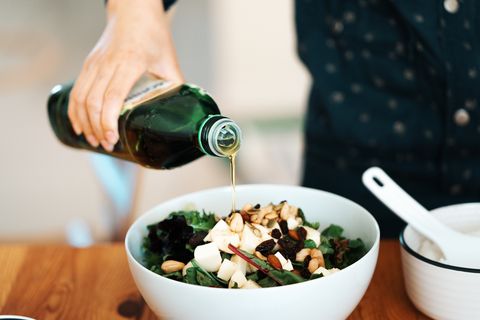
One of the Mediterranean Diet’s staple foods, olive oil, is worth highlighting for how it may support your liver health.
“Olive oil is a good source of monounsaturated fat—a healthy fat that improves cholesterol and triglyceride levels,” says Yawitz. Olive oil also contains antioxidants that have been found to protect against liver inflammation and scarring. Plus, its versatility makes it quick and easy to add to any diet.
Yawitz recommends using olive oil as base for homemade salad dressings, drizzle it over vegetables before or after roasting, or swap it in for the vegetable oil in your baked goods.
Advertisement – Continue Reading Below
5
Turmeric
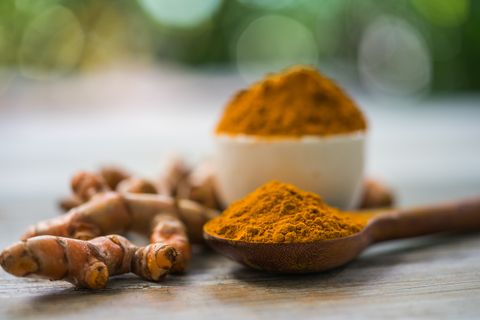
The final verdict on turmeric is still out, but it may still be worth incorporating this food into your diet to protect your liver.
“In animal models, curcumin, which is a polyphenol found in turmeric, has been shown to be beneficial for the liver, though data is scarce demonstrating any positive effect in humans,” says Bansal.
No need to go buy turmeric supplements, but adding natural turmeric to your food may be a tasty way to benefit the liver.
6
Yogurt
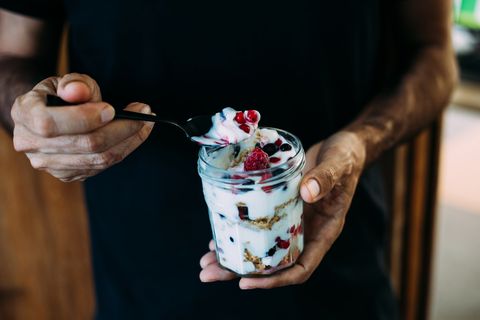
Not all yogurts are created equal—some are total sugar bombs. But if you take some time to check your labels, your liver may thank you. Your best bet is to pick a brand with live, active cultures and zero added sugar, Yawitz says.
“High cholesterol has been shown to increase inflammation and scarring in the liver. But yogurt could help protect against liver damage, thanks to probiotics that help break down LDL (‘bad’) cholesterol,” says Yawitz. In a 2019 study, probiotic yogurt was found to significantly reduce total and LDL cholesterol in adults with mild to moderately high cholesterol.
Advertisement – Continue Reading Below
7
Water

Did you think you could make it to the end of this list without us showing H2O some respect? Of course not. Yes, we know it’s another beverage. Trust us, it warrants merit.
“Water isn’t the most exciting drink for liver health, but it helps keep your body’s filtration system running smoothly,” says Yawitz. “In a large 2021 study, men who drank at least eight glasses of water daily were less likely to develop NAFLD than men who didn’t drink as much water.”
Since drinking less alcohol and more water are both good for the liver, she recommends replacing one adult drink daily with a glass of water. Need help getting your ounces in? We got you.
Perri O. Blumberg
Perri is a New York City-born and -based writer; she holds a bachelor’s in psychology from Columbia University and is also a culinary school graduate of the plant-based Natural Gourmet Institute, which is now the Natural Gourmet Center at the Institute of Culinary Education. Her work has appeared in the New York Post, Men’s Journal, Rolling Stone, Oprah Daily, Insider.com, Architectural Digest, Southern Living, and more. She’s probably seen Dave Matthews Band in your hometown, and she’ll never turn down a bloody mary. Learn more at VeganWhenSober.com.
